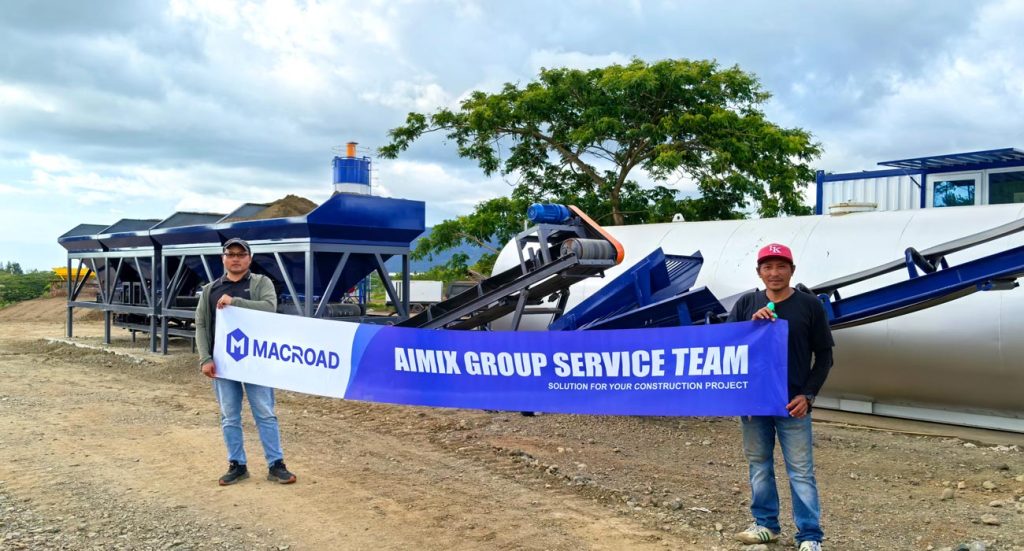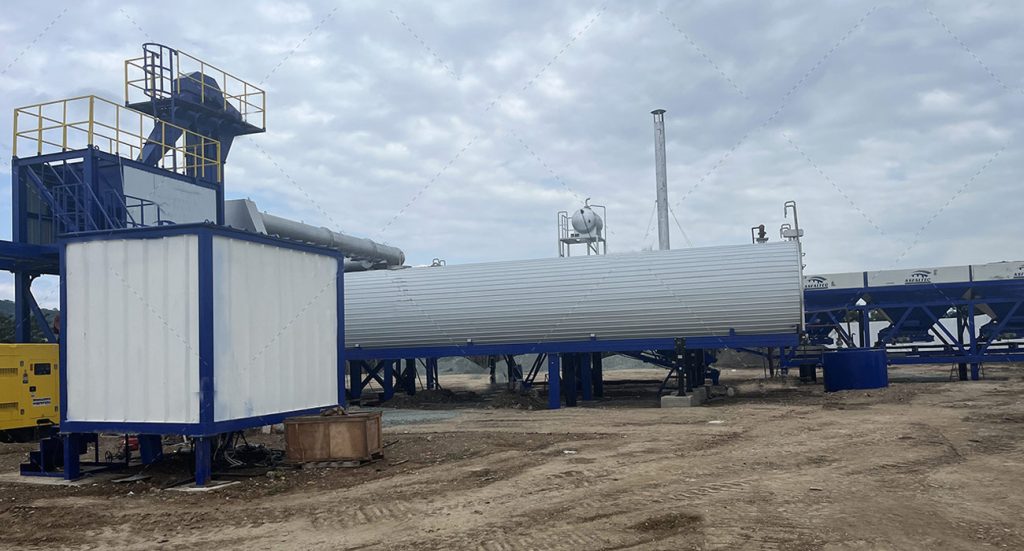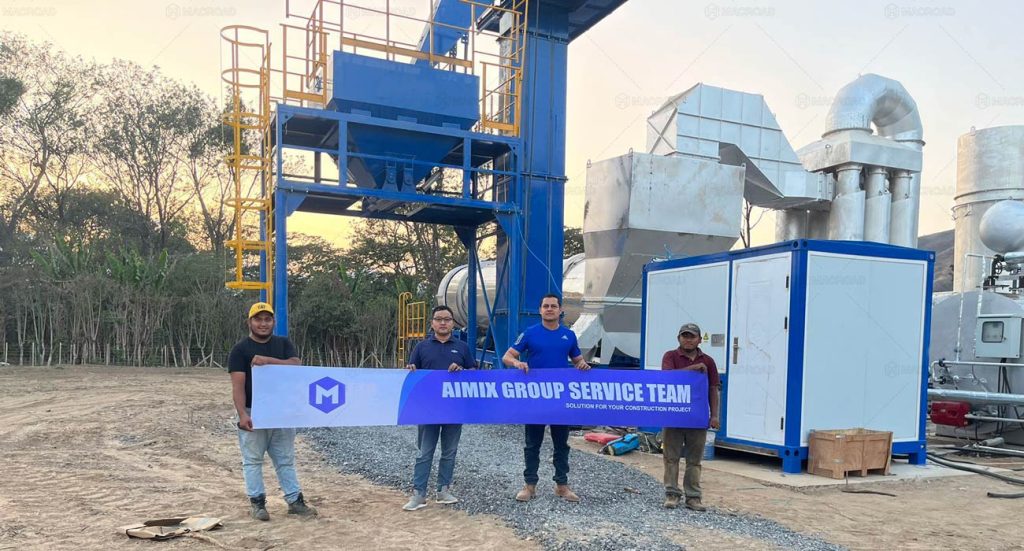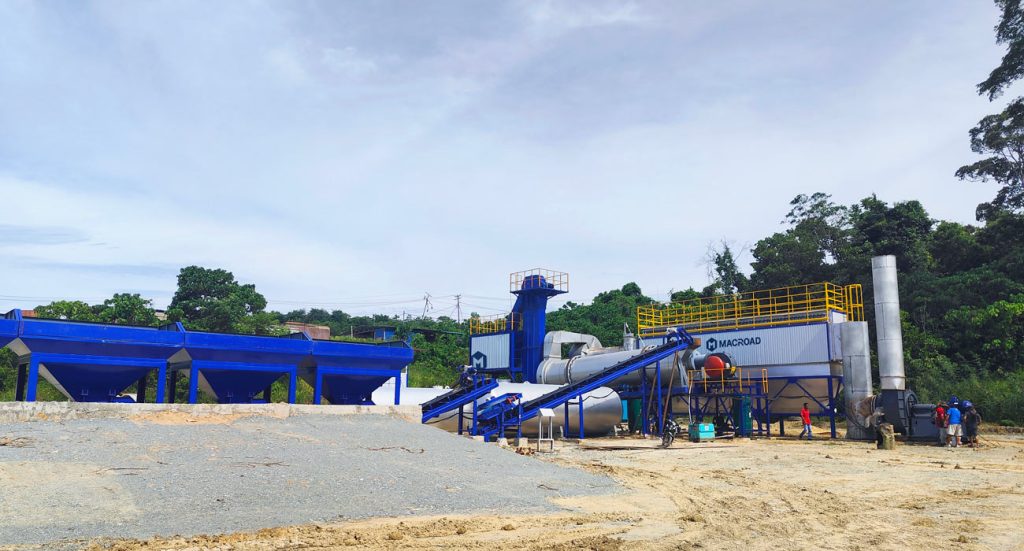The environmental compliance of an asphalt plant is heavily influenced by the pollution control capabilities of the asphalt drum mix plant. As environmental standards vary significantly across regions, including dust emission limits and asphalt fume treatment requirements, asphalt plant manufacturers must adapt their designs accordingly. This article explores how manufacturers optimize the environmental configurations of drum mix plants to meet regional differences while ensuring seamless integration with production processes.

Understanding Regional Environmental Standards
Different regions impose varying environmental regulations that affect asphalt production. For instance, urban areas may have stricter dust emission limits and more rigorous requirements for asphalt fume treatment compared to rural locations. Asphalt plant manufacturers must be aware of these standards to design systems that not only comply with legal requirements but also minimize environmental impact.
In high-demand areas, the configuration of an asphalt drum mix plant may include multi-stage dust removal systems combined with catalytic combustion units. These advanced systems effectively manage emissions but require careful integration to avoid hindering production efficiency. Conversely, in regions with basic environmental demands, manufacturers might provide simpler, more economical dust removal devices that meet local standards without excessive complexity.

Integrating Environmental Components with Production Efficiency
A crucial aspect of optimizing environmental compliance is the seamless integration of pollution control technologies with the asphalt production process. Asphalt plant manufacturers must ensure that these components do not interfere with raw material heating efficiency or increase the overall equipment footprint excessively.
By utilizing innovative designs, manufacturers can incorporate environmental systems into the existing structure of the asphalt drum mix plant. For example, placing dust collection systems strategically can minimize the impact on heating efficiency while ensuring effective pollution control. This integration is vital to maintaining high production rates and quality while adhering to environmental regulations.

Preventing Compliance Issues and Production Downtime
Improper environmental configurations can lead to significant compliance issues, potentially forcing an asphalt plant to halt operations until adjustments are made. To prevent such scenarios, manufacturers should conduct thorough assessments of local environmental regulations and tailor their equipment accordingly.
Regular maintenance and monitoring of environmental systems also play a crucial role in ensuring ongoing compliance. By implementing a proactive maintenance strategy, asphalt plant operators can identify and address potential issues before they affect production efficiency or compliance status.

Leveraging Technology for Enhanced Compliance
As technology continues to evolve, asphalt plant manufacturers have access to advanced solutions that enhance environmental compliance. For instance, real-time monitoring systems can provide data on emissions, allowing operators to make immediate adjustments to processes as needed. This capability not only ensures compliance but also optimizes production efficiency, reducing the risk of downtime.
Companies like Macroad are at the forefront of developing such technologies, enabling asphalt plant manufacturers to efficiently integrate environmental solutions into their operations. By leveraging these advancements, manufacturers can enhance their compliance efforts while maintaining high production standards.
Conclusion: Ensuring Sustainable Asphalt Production
In conclusion, optimizing the environmental compliance of asphalt drum mix plants requires a multifaceted approach. Asphalt plant manufacturers must carefully consider regional environmental standards, integrate pollution control systems efficiently, and leverage technology to enhance compliance. By doing so, they can ensure that asphalt plants operate within legal parameters while maintaining production efficiency, ultimately contributing to more sustainable road construction practices.
